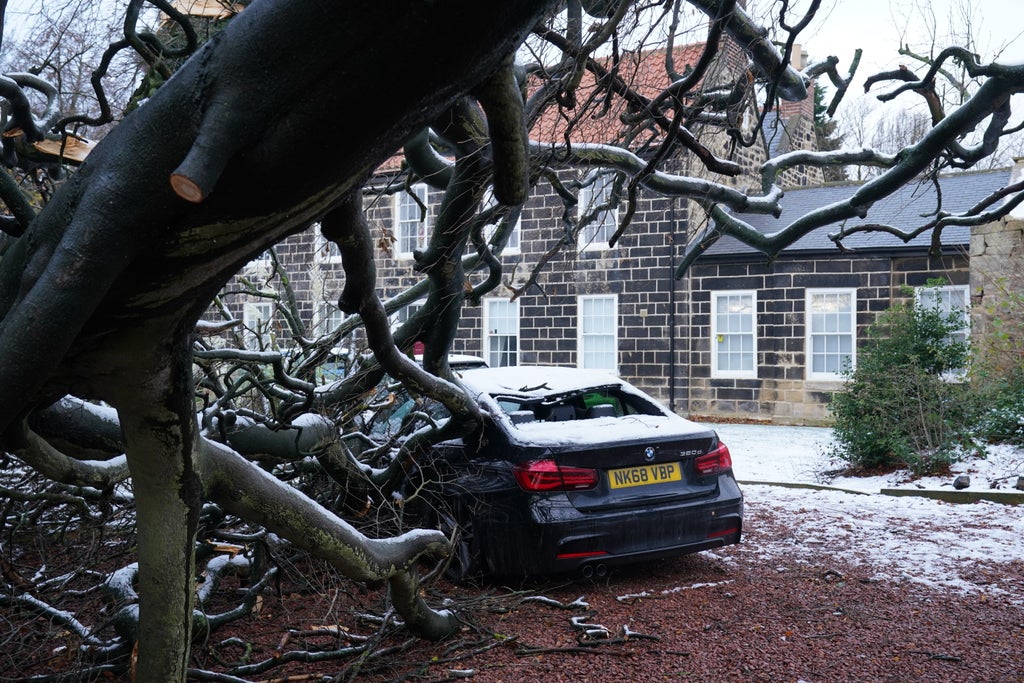
Emergency responses to devastating storms should improve to protect people left without power for days, a review of Storm Arwen has found.
Mass door-knocking in areas affected by power outages should be rehearsed and practised in future to ensure the welfare of affected people, the Government has been told.
Analysis of the preparation and response to the storm sets out 15 recommendations in six areas, including improving how those most at risk are found and helped, better use of volunteers and community support, and more accurate communication by energy companies.
Storm Arwen hit the UK on November 26, bringing winds of 100mph that uprooted trees, damaging power lines and cutting the electricity supply in more than 200,000 homes, with outages lasting for 10 days in some areas.
The experience of Storm Arwen underlined the vital role of volunteers and community groups in ensuring the welfare of those around them
The storm also caused one death in Scotland when a falling tree crushed a driver in Aberdeenshire.
A review of the storm response praises volunteers and community groups who “played a crucial role in ensuring the welfare of those around them” with rest centres and catering services being set up while hot food and drinks were delivered to homes left without power.
But the report suggests that more could be done to involve the voluntary and community sector in the planning of emergency responses, stating that, in the absence of mobile or landline telephone links, wide-scale door-knocking was the only way of ensuring the welfare of the public.
Therefore, it suggests that, alongside making the most of selfless volunteers, resilience partnerships should “ensure they have adequate plans in place to allow for the strategic coordination of large-scale, door-to-door, welfare checks, and that these plans are tested and exercised”.
Commenting on the review, Deputy First Minister, John Swinney said: “Following the widespread disruption and devastation caused by Storm Arwen, I committed to a full review of the preparations and response to ensure that we take all the learning from this exceptional storm.
“We already have strong and robust arrangements in place to manage and address weather-related resilience issues at national, regional and local levels, but I want to ensure that our arrangements continue to evolve and strengthen for the future, which is what this review will help deliver.
“The experience of Storm Arwen underlined the vital role of volunteers and community groups in ensuring the welfare of those around them.
“That is why we intend to bring the voluntary and community sector into the heart of local resilience planning to ensure they are fully integrated into arrangements for the future.
“In addition, we will improve processes to help us identify those people who are most at risk, in order to direct and provide help as quickly as possible.
“We recognise the urgent need to prepare for increased severe weather as a consequence of the climate emergency, and to ensure arrangements in relation to our energy supply are as robust as possible as we transition towards net zero.”
Chair of the Scottish Resilience Partnership, Jim Savege, added: “Storm Arwen was a particularly severe weather event that required a significant response from emergency responders, utility companies and communities over an extended period of time.
“I would want to recognise and thank all of those involved in the response for their efforts in helping ensure communities across affected areas were supported and helped where needed.
“As with every incident there is always learning and improvement to be had – the report sets out a range of areas where we can continue to strengthen our resilience as a country in preparation for any future events.”







